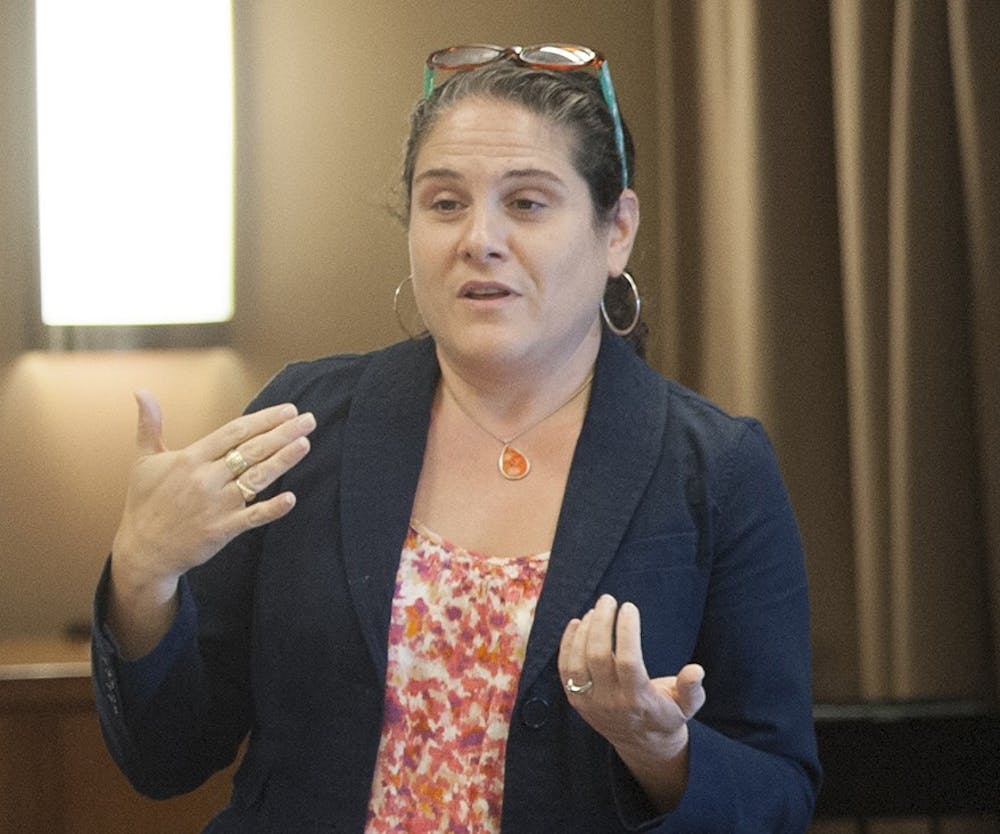Associate Dean of Students Nicole Eramo spoke out for the first time since the release of Rolling Stone’s “A Rape on Campus” in a letter to Rolling Stone CEO Jann Wenner, dated Wednesday. Eramo wrote a scathing critique of how the magazine has handled the story and its reaction to public scrutiny.
While there has been a focus on the flaws of the article’s portrayal of the alleged assault, there has not been enough emphasis on the negative portrayal of the University’s counseling process for survivors, Eramo said in the letter’s opening.
“Understandably, much of the public’s attention has been focused on the inaccuracy of the article’s account of a sexual assault involving Jackie and the flawed journalistic process processes at Rolling Stone that lead to the publication of the article,” she said. “Much less has been said, however, about the article’s false account of the University’s attitude regarding sexual assault and, in particular, the article’s false and grossly misleading portrayal of the counseling and support that I have provided to Jackie, including encouraging her to report.”
Eramo defended the University’s efforts to help Jackie, as well as her own. She said the University encouraged Jackie to take action against her assailants through the legal system, which she said was confirmed by both the Charlottesville Police Department investigation and the Columbia Journalism School’s review of the article published Apr. 8.
“As the Charlottesville Police Department’s press release makes clear, Jackie met twice with investigators (at my encouragement) in April and May of 2014, but she refused to provide any specific details about her assault and chose not to cooperate with any criminal investigation,” Eramo said.
Eramo criticized the response she received from Rolling Stone’s attorneys when she approached them in February. Then, they said the paper stood by their characterization of Eramo and the University’s response to Jackie’s case — a characterization the Charlottesville Police Department and Columbia Journalism School review subsequently disproved. She also addressed the article’s portrayal of her actions specifically, and said the article painted her as a “false friend” to assault victims..
“Adding insult to injury, your attorneys said that the article’s portrayal of me — which cast me as an unsympathetic and manipulative false friend to sexual assault victims who is more interested in keeping assault statistics down than providing meaningful guidance to victims or holding perpetrators of sexual assault accountable — was ‘fair,’” Eramo said.
Eramo said she attempts to show sensitivity to victims while still encouraging them to take action against their assailants, a difficult task.
“I encourage survivors to hold perpetrators accountable, while at the same time showing sensitivity to victims who believe they are not emotionally prepared for the rigors or perceived shame that often accompany reporting,” Eramo said. “Striking this balance — and many other aspects of the job — is not easy.”
Eramo also said Sabrina Erdely, the author of the Rolling Stone article, failed to include important information regarding the process by which sexual assault victims are assisted. She said the desires of each survivor must be taken into account when determining the best course of action.
“There is no simple road map for working with rape survivors,” Eramo said. “Reactions to trauma are as unique as the victims who suffer it.”
Since the publishing of the article, Eramo stated she has received not only a notorious reputation in the national press and the public eye, but also numerous threatening and malicious emails, letters and phone calls. During the investigation of the article’s accusations, University officials prohibited Eramo from working with current student clients.
The letter states the measures taken by Rolling Stone leadership in response to the article’s criticism are “too little, too late,” citing the permanent negative impact on Eramo’s public reputation and life’s work.
“Although the magazine has finally removed the original article from Rolling Stone’s website (something we asked for months ago), my name — and the photo-shopped picture of me — remain forever linked to an article that has damaged my reputation and falsely portrayed the work to which I have dedicated my life,” she said. “These steps are not good enough. The University of Virginia — and those of us who work for the University supporting victims of sexual assault — deserve better.”







